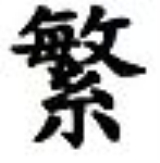
Futian incident
Encyclopedia
The Futian incident is the common title for the December 1930 purge of a battalion of the Jiangxi-Fujian Soviet
's "Red Army" at Futian (now in the Ji'an
's Qingyuan District
). The Futian battalion's leaders had mutinied against Mao Zedong
's purge of the Jiangxi Action Committee, ordered on the pretext of its alleged connection to the Anti-Bolshevik League
and ties to Trotskyism
.
, the Futian battalion rebelled against Mao, claiming that Mao was attempting to arrest generals Zhu De
and Peng Dehuai
, and surrender to the KMT army. These claims were unfounded, but the rebellion highlighting the friction that existed between factions of the Red Army during the early days of the Communist revolution. In response to the rebellion, 700 officers of the Futian battalion were arrested and executed, and the remnants of the battalion were absorbed into others. Following the Futian incident, the purges against suspected AB League member intensified, with an estimated 70,000 to have been killed as a result.
During the Futian incident Zhu De and Peng Dehuai were unequivocal supporters of Mao, despite their different political positions. This allowed Mao's position as leader of the Red Army to be vindicated.
commissioned an investigation into the Futian incident, which recommended the rehabilitation of the victims, but it was never followed up due to the Tiananmen Square protests
.
Jiangxi-Fujian Soviet
The Jiangxi–Fujian Soviet was the largest component territory of the Chinese Soviet Republic , an unrecognized state established in November 1931 by Mao Zedong and Zhu De during the Chinese civil war...
's "Red Army" at Futian (now in the Ji'an
Ji'an
- External links :* *...
's Qingyuan District
Qingyuan District
Qingyuan is a district in the municipal region of Ji'an, Jiangxi province, People's Republic of China.Qingyuan comprises the right bank of the Ganjiang River opposite the JiAn municipal government centre, and stretches southeast in a rather narrow strip of territory up to Mount Dawu on the...
). The Futian battalion's leaders had mutinied against Mao Zedong
Mao Zedong
Mao Zedong, also transliterated as Mao Tse-tung , and commonly referred to as Chairman Mao , was a Chinese Communist revolutionary, guerrilla warfare strategist, Marxist political philosopher, and leader of the Chinese Revolution...
's purge of the Jiangxi Action Committee, ordered on the pretext of its alleged connection to the Anti-Bolshevik League
Anti-Bolshevik League incident
The Anti-Bolshevik League incident, or AB League Incident , was a period of political purge in the territory of a Chinese Communist revolutionary bases in Jiangxi province. Mao Zedong accused his political rivals of belonging to the Kuomintang intelligence agency "Anti-Bolshevik League"...
and ties to Trotskyism
Trotskyism
Trotskyism is the theory of Marxism as advocated by Leon Trotsky. Trotsky considered himself an orthodox Marxist and Bolshevik-Leninist, arguing for the establishment of a vanguard party of the working-class...
.
Background
In response to the Anti-Bolshevik League incidentAnti-Bolshevik League incident
The Anti-Bolshevik League incident, or AB League Incident , was a period of political purge in the territory of a Chinese Communist revolutionary bases in Jiangxi province. Mao Zedong accused his political rivals of belonging to the Kuomintang intelligence agency "Anti-Bolshevik League"...
, the Futian battalion rebelled against Mao, claiming that Mao was attempting to arrest generals Zhu De
Zhu De
Zhu De was a Chinese militarist, politician, revolutionary, and one of the pioneers of the Chinese Communist Party. After the founding of the People's Republic of China, in 1955 Zhu became one of the Ten Marshals of the People's Liberation Army, of which he is regarded as the founder.-Early...
and Peng Dehuai
Peng Dehuai
Peng Dehuai was a prominent military leader of the Communist Party of China, and China's Defence Minister from 1954 to 1959. Peng was an important commander during the Second Sino-Japanese War, the Chinese civil war and was also the commander-in-chief of People's Volunteer Army in the Korean War...
, and surrender to the KMT army. These claims were unfounded, but the rebellion highlighting the friction that existed between factions of the Red Army during the early days of the Communist revolution. In response to the rebellion, 700 officers of the Futian battalion were arrested and executed, and the remnants of the battalion were absorbed into others. Following the Futian incident, the purges against suspected AB League member intensified, with an estimated 70,000 to have been killed as a result.
During the Futian incident Zhu De and Peng Dehuai were unequivocal supporters of Mao, despite their different political positions. This allowed Mao's position as leader of the Red Army to be vindicated.
Further developments
In September 1956, Mao admitted that the purges during the Anti-Bolshevik League incident, as well as the Futian incident, were a mistake, in which the wrong people were killed. In 1988, President Yang ShangkunYang Shangkun
Yang Shangkun was President of the People's Republic of China from 1988 to 1993, and was permanent Vice-chair of the Central Military Commission...
commissioned an investigation into the Futian incident, which recommended the rehabilitation of the victims, but it was never followed up due to the Tiananmen Square protests
Tiananmen Square protests of 1989
The Tiananmen Square protests of 1989, also known as the June Fourth Incident in Chinese , were a series of demonstrations in and near Tiananmen Square in Beijing in the People's Republic of China beginning on 15 April 1989...
.

